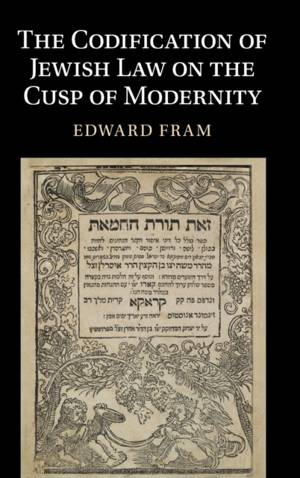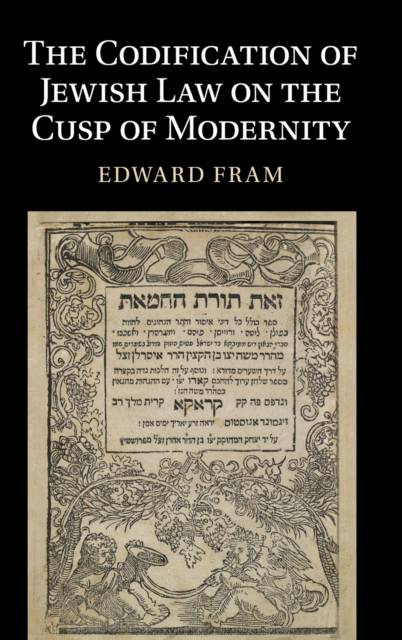
- Afhalen na 1 uur in een winkel met voorraad
- Gratis thuislevering in België vanaf € 30
- Ruim aanbod met 7 miljoen producten
- Afhalen na 1 uur in een winkel met voorraad
- Gratis thuislevering in België vanaf € 30
- Ruim aanbod met 7 miljoen producten
Zoeken
€ 152,95
+ 305 punten
Omschrijving
For more than four centuries, Jewish life has been based on a code of law written by Joseph Caro, his Shulḥan `aruk ['set table']. The work was an immediate best-seller because it presented the law in a clear and concise format. Caro's work, however, was methodologically problematic and was widely criticized in the first generations after its publication. In this volume, Edward Fram examines Caro's methods as well as those of two of his contemporaries, Moses Isserles and Solomon Luria. He highlights criticisms of Caro's legal thought and brings alternative methodologies to the fore. He also compares these three jurists, while placing their methods, and cases in their historical, intellectual, and religious contexts. Fram's volume ultimately explains why Caro's methodologically problematic work won the day, while more sophisticated approaches remained points of legal reference but fell short of achieving the acceptance that their authors hoped for.
Specificaties
Betrokkenen
- Auteur(s):
- Uitgeverij:
Inhoud
- Aantal bladzijden:
- 342
- Taal:
- Engels
Eigenschappen
- Productcode (EAN):
- 9781316511572
- Verschijningsdatum:
- 28/04/2022
- Uitvoering:
- Hardcover
- Formaat:
- Genaaid
- Afmetingen:
- 152 mm x 229 mm
- Gewicht:
- 625 g

Alleen bij Standaard Boekhandel
+ 305 punten op je klantenkaart van Standaard Boekhandel
Beoordelingen
We publiceren alleen reviews die voldoen aan de voorwaarden voor reviews. Bekijk onze voorwaarden voor reviews.








